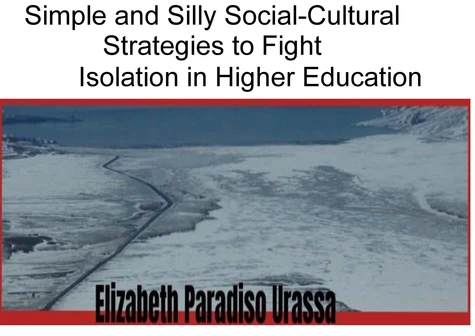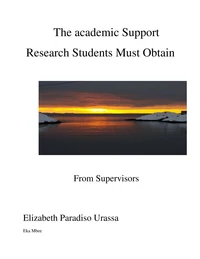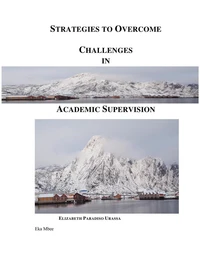Simple and Silly Social -Cultural Strategies to Fight Isolation in Higher Education
Par :Formats :
Disponible dans votre compte client Decitre ou Furet du Nord dès validation de votre commande. Le format ePub est :
- Compatible avec une lecture sur My Vivlio (smartphone, tablette, ordinateur)
- Compatible avec une lecture sur liseuses Vivlio
- Pour les liseuses autres que Vivlio, vous devez utiliser le logiciel Adobe Digital Edition. Non compatible avec la lecture sur les liseuses Kindle, Remarkable et Sony
 , qui est-ce ?
, qui est-ce ?Notre partenaire de plateforme de lecture numérique où vous retrouverez l'ensemble de vos ebooks gratuitement
Pour en savoir plus sur nos ebooks, consultez notre aide en ligne ici
- FormatePub
- ISBN978-82-998672-4-5
- EAN9788299867245
- Date de parution02/01/2023
- Protection num.pas de protection
- Infos supplémentairesepub
- ÉditeurInformation is Power
Résumé
Scholarly literature has informed different reasons for higher education student attrition. One major challenge most students face, especially doctoral students, is the isolation that hinders them from integrating and becoming part of the learning society. Indeed, the current learning environment in higher education may be challenging to many, especially those without social-relational skills. Globalization and internationalization in higher education have made students and academics mobile.
So, students without social relationship knowledge and skills may feel overwhelmed and should be guided to overcome the situation; otherwise, they may drop out of their studies. Therefore, the author of this book, Elizabeth, emphasizes that mastering social-relational aspects of the contextual learning community can support students in interacting with their learning agencies and beyond. The author calls for students' understanding of five SILLY but essential social relational factors crucial in opening many doors, regardless of the supervisors' abilities, resources availability, and the learning contents. Read the book to gain useful knowledge.
So, students without social relationship knowledge and skills may feel overwhelmed and should be guided to overcome the situation; otherwise, they may drop out of their studies. Therefore, the author of this book, Elizabeth, emphasizes that mastering social-relational aspects of the contextual learning community can support students in interacting with their learning agencies and beyond. The author calls for students' understanding of five SILLY but essential social relational factors crucial in opening many doors, regardless of the supervisors' abilities, resources availability, and the learning contents. Read the book to gain useful knowledge.
Scholarly literature has informed different reasons for higher education student attrition. One major challenge most students face, especially doctoral students, is the isolation that hinders them from integrating and becoming part of the learning society. Indeed, the current learning environment in higher education may be challenging to many, especially those without social-relational skills. Globalization and internationalization in higher education have made students and academics mobile.
So, students without social relationship knowledge and skills may feel overwhelmed and should be guided to overcome the situation; otherwise, they may drop out of their studies. Therefore, the author of this book, Elizabeth, emphasizes that mastering social-relational aspects of the contextual learning community can support students in interacting with their learning agencies and beyond. The author calls for students' understanding of five SILLY but essential social relational factors crucial in opening many doors, regardless of the supervisors' abilities, resources availability, and the learning contents. Read the book to gain useful knowledge.
So, students without social relationship knowledge and skills may feel overwhelmed and should be guided to overcome the situation; otherwise, they may drop out of their studies. Therefore, the author of this book, Elizabeth, emphasizes that mastering social-relational aspects of the contextual learning community can support students in interacting with their learning agencies and beyond. The author calls for students' understanding of five SILLY but essential social relational factors crucial in opening many doors, regardless of the supervisors' abilities, resources availability, and the learning contents. Read the book to gain useful knowledge.







